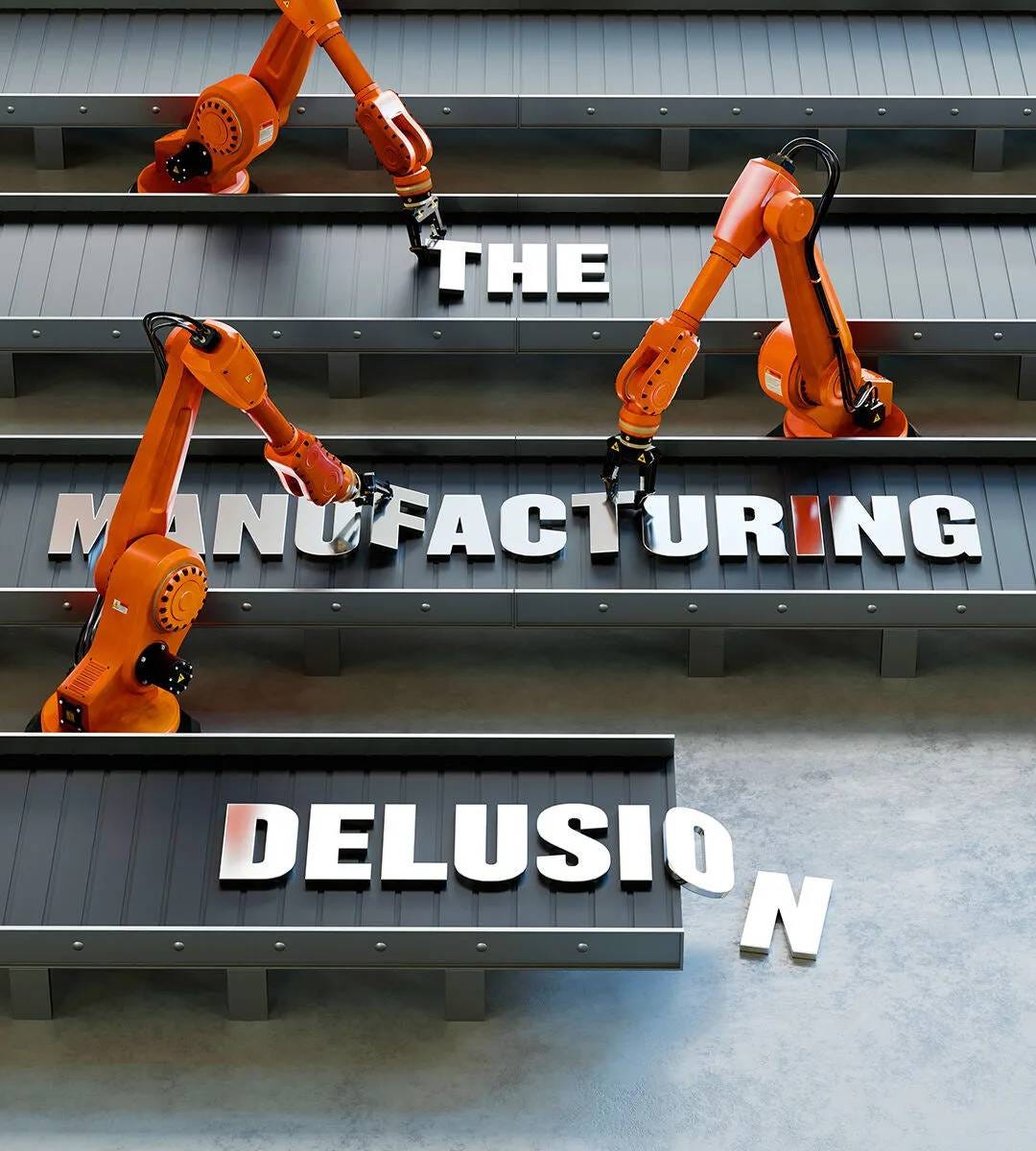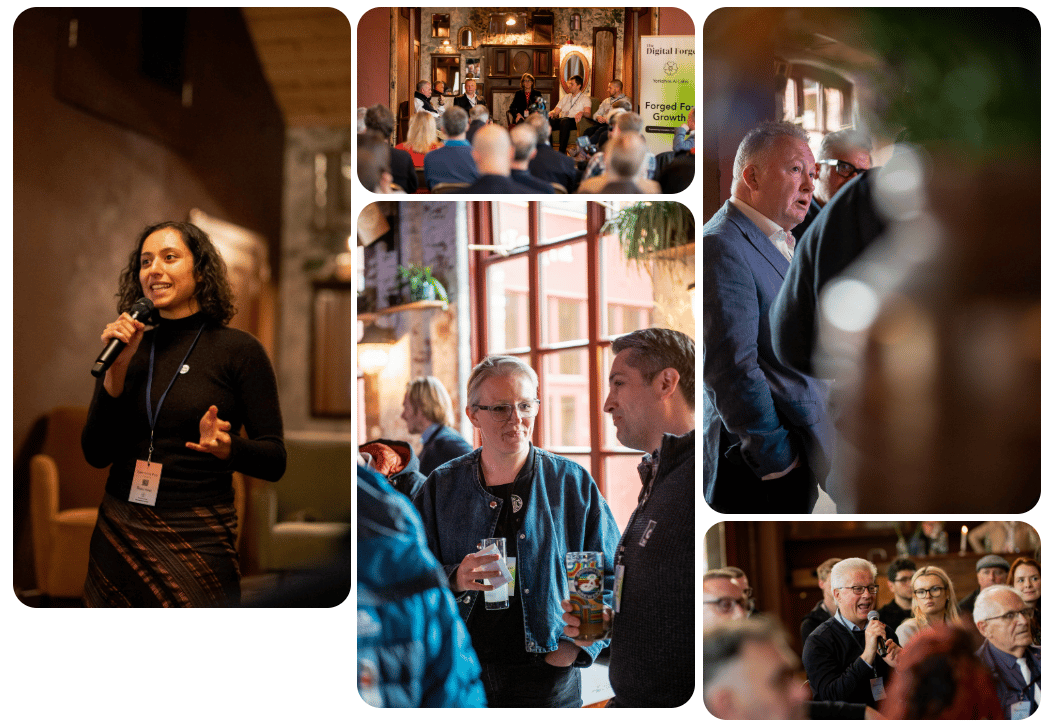The Sunday Signal: Rebuilding Britain's Industrial Future Through AI
Essential Insights on Tech’s Impact, Leadership Lessons, and Navigating Human Potential Issue #13 – Sunday 13 July 2025
⏱️ 10 min read
The Bottom Line Up Front
Britain's ambition to reindustrialise is facing a critical skills shortage. While our national goals are ambitious, the reality is that Britain’s engineering workforce per capita is approximately half that of Germany’s. Artificial intelligence provides a powerful opportunity to address this challenge rapidly and effectively, but we must act decisively and strategically.
Britain's Engineering Challenge: A Critical Moment
I attended last week's Bessemer Society Summit on National Security, an urgent message emerged about Britain's industrial future. While reindustrialisation is frequently discussed, our current capacity to realise these ambitions falls short. Britain’s engineering workforce represents only around 2.3% of total employment, roughly 50% of Germany's 4.7%. This significant gap underscores the pressing need for systemic change.
Germany’s success in engineering is no accident. It is embedded deeply in their education system, vocational training, and cultural respect for technical professions. If Britain aims to compete on equal footing, we must elevate the status of engineering and technical education similarly.
AI technology offers a rapid and scalable solution. Dr Rob Ward, CEO of DigitalCNC, underscored this during the summit: "Currently, we have ten operators for each machine. AI enables us to reverse this ratio, with one operator effectively managing ten machines." Such transformative productivity gains could help Britain overcome its engineering shortfall quickly.
Sheffield is already leading the way, demonstrating what strategic investment and innovation can achieve. The Advanced Manufacturing Research Centre (AMRC) at the University of Sheffield is a prime example. Its approach to industry collaboration and practical innovation has produced successful spin-outs such as DigitalCNC, FourJaw, and Productive Machines Ltd.
IntelliamAI PLC, another Sheffield-based company, is deploying its AI software in the FMCG sector for multinational companies, demonstrating double-digit percentage improvements in productivity. This significantly enhances profitability and positively impacts global carbon footprints.
These companies exemplify how leveraging AI can quickly bridge skills gaps, boost productivity, and promote sustainable manufacturing.
To replicate these successes nationwide, we must urgently invest in similar strategic initiatives, educational reform, and cultural shifts. With AI, Britain has the tools to rapidly address its skills shortage, but we must act now.
Challenging the Manufacturing Delusion
A recent editorial by The Economist, titled "The Manufacturing Delusion," dismissed manufacturing as a self-defeating pursuit. This perspective is deeply flawed and dangerously out of touch. Manufacturing remains critical, not as nostalgia but as the foundation of national security, innovation, and sustained economic power.
This editorial dangerously overlooks the risks of fragile global supply chains, as revealed repeatedly in recent history. Vital sectors, including semiconductors, renewable energy, and AI-driven technologies, demand robust domestic manufacturing to ensure resilience and strategic autonomy.
Furthermore, communities devastated by deindustrialisation need real solutions, not dismissive rhetoric. Innovation thrives best when closely linked to manufacturing ecosystems. Ignoring this essential link is not just misguided, it undermines national strength.
We must reject outdated economic dogma and instead rebuild industrial capacity strategically and urgently. Experts such as Keith Ridgway provide a far more informed perspective than spreadsheet economists disconnected from practical realities.
Game, Set, AI: Automation’s New Frontier
Adapted from my latest Yorkshire Post column.
Today marks the men’s singles final at Wimbledon, notable not only for athletic talent but also as a landmark moment in automation. For the first time, human line judges have been entirely replaced by Hawk-Eye, an AI system initially developed for cricket by Dr Paul Hawkins. This technological advancement made 350 line judges redundant overnight.
Historically, the UK economy shifted dramatically under Margaret Thatcher’s premiership, moving away from manufacturing towards services, banking, and finance. Ironically, these very sectors that absorbed employment losses from manufacturing are now among the first targets for AI-driven automation.
This shift symbolises a broader invasion of AI into white-collar work. Professions built around applying consistent rules, such as legal services, auditing, and compliance, are increasingly vulnerable. AI already reviews contracts, audits accounts, and detects regulatory breaches with tireless accuracy.
Yet rather than causing despair, this shift allows society to refocus on distinctly human strengths: creativity, empathy, and innovation. Automation frees us to lead rather than merely follow rules. The loss of Wimbledon’s line judges is less about displacement and more a signal of where true human value lies. However, it also serves as an urgent reminder of the critical need to proactively address the impending wave of AI-driven job displacement.
Digital Forge Summit: Time for Decisive Action
On 17 July, the Digital Forge Summit convenes in Sheffield with a timely and critical theme: "Reindustrialising the North through Technology, Investment, and Social Mobility." With a strong roster of speakers, including keynote Kate Josephs CB, Chief Executive of Sheffield City Council, this summit has the potential to drive real change.
Josephs brings invaluable experience from leading transformative government initiatives such as the Cabinet Office’s COVID-19 Taskforce. Alongside influential speakers including Richard Penny (Oberon Investments), Dan Ridsdale (Edison Group), Louisa Harrison-Walker OBE (Sheffield Chamber of Commerce), Ben Morgan (AMRC), Naomi Timperley (Computer Weekly’s 2nd Most Influential Woman in UK Tech 2024), and former Cabinet Minister Richard Caborn, this event presents an opportunity for meaningful dialogue and decisive action.
The North’s economic revitalisation will depend not merely on discussions but on real policy shifts, targeted vocational investments, and leveraging technology to bridge the skills gap. Sheffield’s success stories provide a blueprint; now we must act upon it.
🚀 Final Thought
We Must Act Now
Britain faces a defining moment. With our engineering workforce only half that of Germany’s and our service-based jobs increasingly vulnerable to automation, complacency is no longer an option. AI presents a real and urgent solution, offering rapid improvements in productivity, sustainability, and economic resilience.
The successes of Sheffield’s AMRC and pioneering AI companies like IntelliamAI demonstrate that strategic investment in technology and vocational education yields significant, immediate benefits. However, the outdated, short-sighted perspectives from influential voices such as The Economist threaten to hold us back, risking economic stagnation and national vulnerability.
The automation era is not coming - it is here. Our response now will dictate Britain’s economic position for decades. We must decisively embrace AI-driven innovation, invest seriously in technical education, and aggressively rebuild domestic manufacturing capability. The time for incremental steps has passed. Now demands bold, clear-eyed action. Let us rise decisively to meet this challenge and secure Britain’s industrial future.
Until next Sunday,
David
David Richards MBE is a technology entrepreneur, educator, and commentator. The Sunday Signal offers weekly insights at the intersection of technology, society, and human potential.
© 2025 David Richards. All rights reserved.






